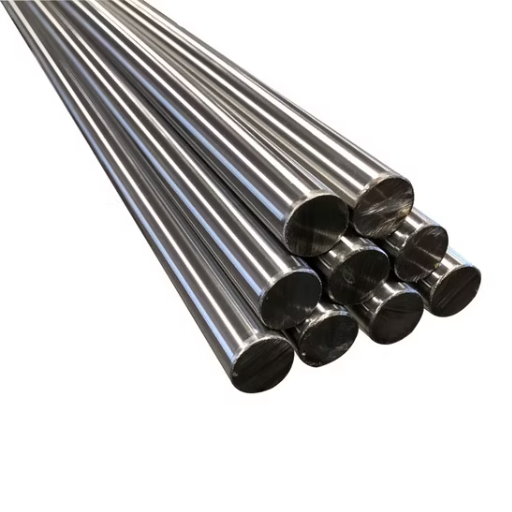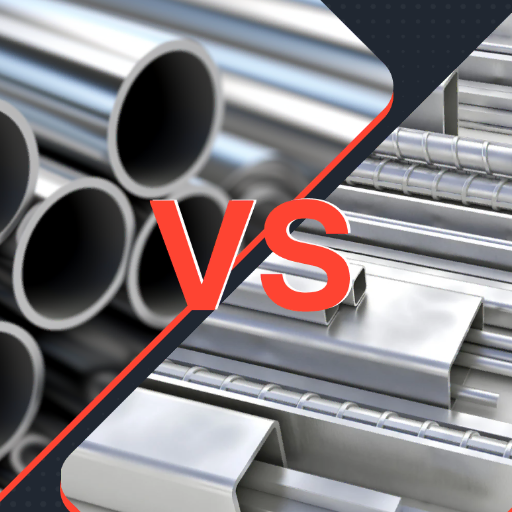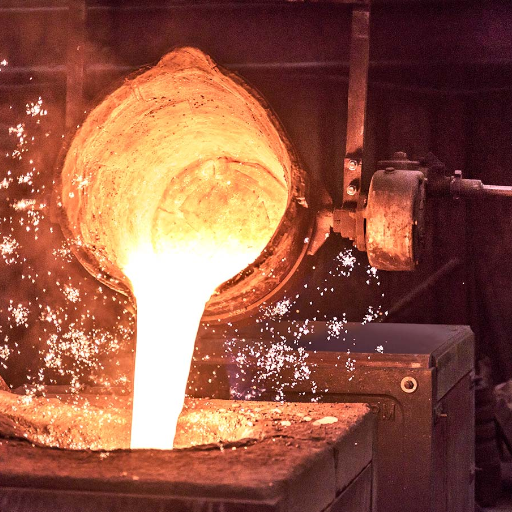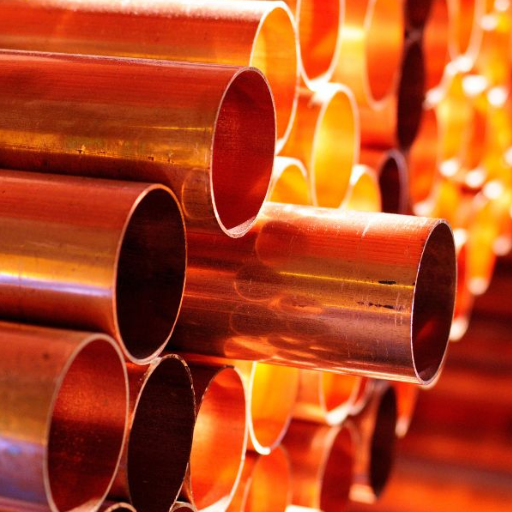Titanium is often lauded for its impressive tensile strength-to-weight ratio, corrosion resistance, and versatility; however, how does it compare to steel, one of the most common and robust materials ever? This article will thus sort out critical properties of both metals in terms of strength, resistance, and practical applications in industries that span from aerospace to construction. By exploring the science behind these materials, we aim to determine whether titanium truly deserves the title of one of the strongest metals or whether steel maintains its dominance in certain major applications. Let’s earnestly probe the subtle nuances of these engineering-warriors regarding their unique contributions to incorporating modern technology and innovations.
Understanding Titanium and Its Properties

Titanium is a major metal in the modern age, superior due to its corrosion resistance, lightweight nature, and biocompatibility. It weighs roughly 45% less than steel but yet has equivalent strength properties, which serve the purpose well. Aerospace components, therefore, require strength and low weight, making them an ideal application. From another angle, its resistance to rusting and corrosion in intriguing environments such as salt water has made it ideal for marine equipment and chemical processing. Titanium is another biocompatible metal that allows human bodies to coexist peacefully with it, thereby paving the way for extensive use in medical implants, including joint replacements and dental appliances. These properties alone explain the versatility and prominence of titanium in myriad disciplines.
Overview of Titanium as a Metal
Titanium alloys have been crafted that modify the natural characteristics of pure titanium and, hence, are found to be indispensable in many advanced industries. Titanium alloys provide an optimal combination of high strength-weight ratio, high corrosion resistance, and thermal stability even in the most extreme environments. They are subjected to temperature levels close to 600°C (1112°F) without appreciable loss of structural integrity. Titanium alloy Ti-6Al-4V is generally considered one of the more common titanium alloys; it accounts for almost half pertaining to all titanium alloy applications due to balanced mechanical properties and ease of fabrication. In the vast realm of biomedical engineering, titanium alloys excel even further. For instance, their superb biocompatibility makes them ideal for implants, and their resistance to bodily fluid attack suits them well for prostheses, dental fixtures, and spinal fusion cages. These alloys actually become one with the human tissue, decreasing potential adverse responses and increasing the longevity of installations. Such uses in titanium alloy industries of versatility and modern attributes, and further expand the array of materials for transformation.
Unique Mechanical Properties of Titanium
- High Strength-to-Weight Ratio
Titanium offers a significant advantage, as it provides the highest strength-to-weight ratio desired in applications requiring both strength and weight reduction. For example, Grade 5 titanium (Ti-6Al-4V) exhibits a tensile strength of around 950 MPa, yet has a density of 4.5 g/cm³, which is almost half that of steel.
- Excellent Corrosion Resistance
Titanium oxide formation on an exposed surface is essential in protecting the metal from corrosion. This passive layer also lasts through aggressive environments of seawater, chlorine, and oxidizing acids, thereby providing a superior resistance in such environments that surpasses that of stainless steel.
- High Fatigue Strength
Titanium resists fatigue better than any other metal under cyclic loading conditions. Hence, it is helpful in the production of components subjected to repeated stress, for instance, aircraft parts and orthopedic implants. For example, fatigue limits for pure titanium can go up to 550 MPa.
- Low Thermal Expansion
Having a coefficient of thermal expansion of around 8.6 µm/m·K, titanium expands the least when thermal loads are imposed, compared to other metals such as aluminum, which has a coefficient of 24 µm/m·K. This property largely ensures dimensional stability in machining or high-precision demanding applications.
- Impressive Ductility
This is a very peculiar quality in titanium; it is highly ductile and can be shaped into complex forms without cracking. Titanium and titanium alloys are widely processed at elevated temperatures through forging, rolling, and extrusion.
Chemical Properties and Corrosion Resistance
Titanium is noted for its high degree of chemical stability, which originates from its strong affinity for oxygen. Hence, the raw metal surface is immediately covered with a very resistant oxide layer (predominantly TiO₂) that will autonomously and self-heal if damaged. The passive layer is extremely resistant to corrosion, even in highly aggressive media, including seawater, chloride, and several acidic solutions. This corrosion resistance is a boon in marine applications where continuous immersion in seawater would usually cause havoc in other metals.
Compare the Differences: Titanium vs Steel
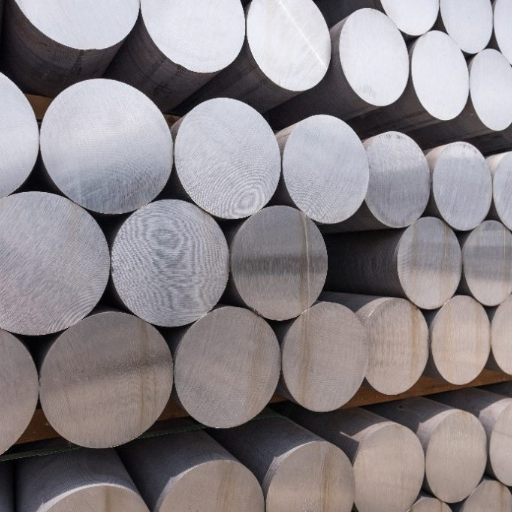
Every so often comes a dilemma between choosing titanium and steel for an industrial application, manufacturing, or engineering project. Both metals have outstanding qualities, making each indispensable in the aerospace, automotive, building, and healthcare industries. However, differences in strength-to-weight ratios, corrosion resistance, versus costs of production, and thermal conductivity, pick up new considerations for the engineers seeking the best material for a particular application. This section will contrast titanium and steel to ensure you make the best decision.
Key Differences: Titanium and Steel
|
Parameter |
Titanium |
Steel |
|---|---|---|
|
Density |
Lightweight, ~4.5 g/cm³ |
Heavier, ~7.8 g/cm³ |
|
Strength-to-Weight Ratio |
Very high |
Moderate |
|
Corrosion Resistance |
Excellent, resists most environments |
Moderate, prone to rust |
|
Cost |
Higher, more expensive to produce |
Lower, widely available |
|
Thermal Conductivity |
Low |
High |
|
Hardness |
Lower than steel |
Higher, depending on grade |
|
Weldability |
More challenging |
Easier, widely practiced |
|
Fatigue Resistance |
Superior in cyclic loads |
Lower, depends on alloy |
|
Biocompatibility |
Excellent, ideal for medical use |
Limited, may cause reactions |
|
Magnetic Properties |
Non-magnetic |
Often magnetic |
|
Temperature Resistance |
Retains properties at high heat |
Depends on alloy, less stable |
|
Environmental Impact |
High energy to produce |
Lower energy requirements |
Comparative Strength: Is Titanium Stronger than Steel?
Comparisons of titanium and steel strength must be carried out, taking into account the variety within types and grades of materials and their corresponding mechanical properties. Titanium, especially its widely accepted Grade 5 (Ti-6Al-4V) alloy, exhibits a tensile strength of approximately 900 MPa to 1,200 MPa, matching many of the so-called “high-strength steels.” What distinguishes titanium and gives it a huge advantage over steel, however, is the strength-to-weight ratio. Maintaining structural integrity at such high strength would be a dream for engineers to keep in weight. Considering the weight of the applications, titanium is almost 45% lighter than steel, making it pivotal in aerospace and medical applications.
Strength-wise, steels have an extensive range, mostly falling between 400 MPa and 1,500 MPa, which is influenced by variations in composition and heat treatments. High-carbon and alloy types of steel, for example, can offer tensile strengths larger than titanium, yet conversely have the weight disadvantage. Similarly, in general manufacturing scenarios, steel typically offers the advantages of high ductility and ease of machining. Essentially, titanium does not consistently outperform steel in mechanical terms; however, in combination with its high strength-to-weight ratio, corrosion resistance, and biocompatibility, it earns preference in select fields.
Durability Factors in Titanium and Steel
The longevity of titanium and steel is determined by their reaction to external stresses, such as corrosion, wear, or fatigue. Titanium, due to its oxidation layer, is extremely resistant to corrosion, even in the most aggressive environments, such as seawater or acidic conditions. That does make it a leading candidate for marine and chemical installations. The high fatigue resistance of titanium enables it to operate under cyclic loads for extended periods – a prerequisite that is essential in aerospace and medical applications.
The Exceptional Strength-to-Weight Ratio of Titanium
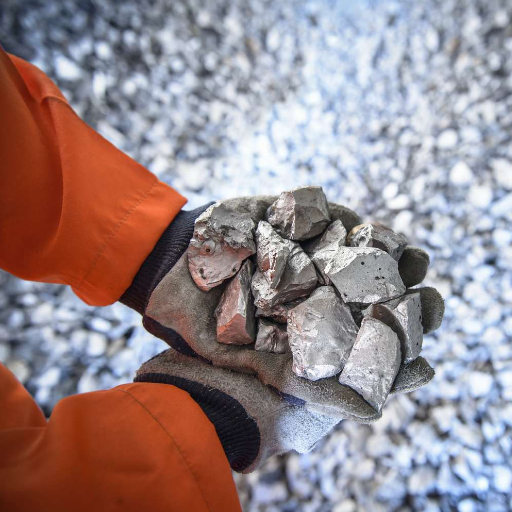
Being known for a great strength-to-weight ratio, titanium stands to be the best choice in aerospace, medical, and automotive engineering. Its strength is close to that of steel, and yet it is 45% lighter, demonstrating high levels of performance without any compromise in making a structure. Titanium also has good fatigue resistance and corrosion resistance in adverse environments. These properties serve well for uses well-understood where durability takes priority, yet weight minimization is a must.
Why Strength-to-Weight Matters in Various Industries
The strength-to-weight ratio becomes the primary factor in fields where performance, efficiency, and durability are the key attributes, and serves as an example of how infrastructure engineering can be compromised by even a one-pound load, affecting fuel consumption and operational costs. Materials having such a strength-to-weight ratio as titanium and composites enable lightweight construction of airframes with very high structural integrity against enormous stress under variable atmospheric conditions. Additionally, the automotive industry relies on lightweight materials for improved vehicle performance, enhanced fuel efficiency, and compliance with stringent emissions standards. Particularly, high weight reduction directly translates to improved battery efficiency and increased range of several kilometers for electric vehicles. Strength-to-weight ratio also enables implants and prostheses in the medical field to be functional and comfortable, without compromising safety. These industries, which utilize advanced materials with high strength-to-weight ratios, continue to strive to meet the efficiency demands of today.
Applications in Aerospace and Automotive
- Aircraft Structural Components
The lightest materials, including aluminum, carbon fibers, and titanium, now heavily support modern commercial and military aircraft in the construction of fuselages, wings, and supporting structures. In the case of the Boeing 787 Dreamliner, around 50% of its weight comprises composite materials, thereby reducing fuel consumption by 20% compared to conventional aircraft.
- Satellite Design
In spacecraft, the use of ultralight materials is crucial for reducing launch payload weight while maintaining the fundamental requirement of structural integrity. Materials-based concepts, such as graphene composites and high-strength polymers, are concurrent with ensuring that satellites can sustain themselves in various processing environments without incurring exorbitant launch costs. It is said that the weight reduction of every kilogram saves $20,000 on launching.
- Propulsion Systems
Significant advantages to jet engine generation stem from the use of materials such as nickel-based superalloys and ceramic-matrix composites. The materials enable the operating temperature to be increased while maintaining a lighter weight, thereby enhancing fuel efficiency and operational reliability.
- Vehicle Frames and Chassis
Car builders use ultra-high-strength steels, aluminium alloys, and composite materials in chassis manufacturing to cut weight without compromising crashworthiness. For instance, Ford achieved a 25% better fuel economy by reducing the weight of the F-150 by 700 pounds, utilizing military-grade aluminum alloys.
- Electric Vehicle (EV) Batteries
Medical Applications Leveraging Titanium’s Properties
- Orthopedic Implants
Titanium is used in hip replacements, knee implants, and spinal fixation devices because of its strength and lightweight properties. Titanium implants reduce stress shielding better than cobalt-chromium and promote osseointegration (bone bonding). Studies have shown that titanium-based orthopedic implants achieve a success rate of approximately 95% in 10 years under most conditions.
- Dental Implants
The ability to form bone-like osseointegration with jawbone tissue makes titanium and titanium alloys the principal materials used in dental implants. According to clinical data, titanium implants have an approximately 94%-97% survival rate over ten years, thereby cementing their status as an effective restorative material.
- Cardiac and Vascular Devices
The corrosion resistance and biocompatibility of titanium benefit pacemaker cases and vascular stents. Specifically, titanium stents are highly durable and very lightweight, which minimizes the risk of restenosis and performs well in blood-contacting environments.
- Prosthetics
- Cranial and Maxillofacial Reconstruction
Manufacturing Processes of Titanium
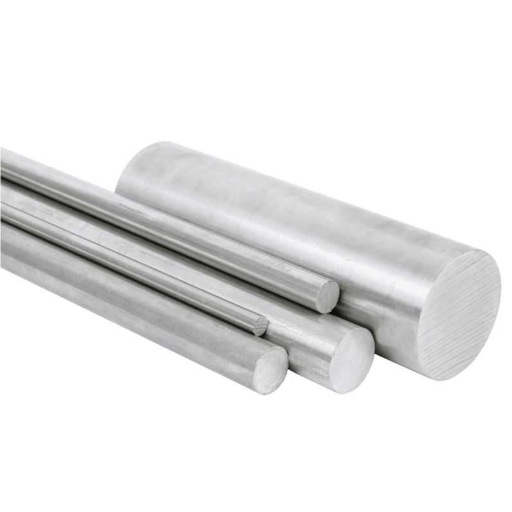
The manufacturing of titanium involves diverse stages to ensure the formation of high-quality material suitable for a number of applications. The process begins with extracting titanium ore, chiefly rutile or ilmenite, which is then refined into titanium dioxide. Titanium tetrachloride is then produced in the Kroll process and reduced either by magnesium or sodium to sponge titanium. Sponge titanium is melted using a vacuum arc to achieve high purity and uniformity, resulting in ingots. Forging, rolling, or machining is used to convert titanium into the desired shapes-sheets, bars, or medical-grade components. Attention is paid to precision and strength, ensuring compliance with rigorous industry standards.
Overview of Titanium Extraction and Processing
Titanium is a high-strength, lightweight metal that exhibits excellent corrosion resistance properties, along with biocompatibility. With an impressive strength-to-weight ratio, it finds extensive uses in aerospace, healthcare, automotive, and chemical processing industries. Its resistance to oxidation and ability to resist all kinds of oxidizing agents at high temperatures validate the titanium as an ideal metal for aircraft components and spacecraft structures. It is also considered toxic and is compatible with human tissues; therefore, it is the preferred material for medical implants and prosthetics.
Recently, the increased popularity of titanium was also provided by the development of advances in the techniques of processing titanium, such as additive manufacturing (3D printing) with which complex geometries could now be produced and material waste could be kept at a minimum. Due to the introduction of these cutting-edge processing methods, titanium still remains the material of choice for further advanced technologies, giving higher levels of performance in environments where such levels are imperative.
Innovations in Titanium Manufacturing Technologies
The constant innovation in titanium manufacturing methods has revolutionized industries that depend on this advanced material. One major advancement can be seen in powder metallurgy, where titanium parts can be produced with high efficiency, enabling better control over the microstructure. Powder-based manufacturing routes, such as HIP and MIM, are avenues toward the production of high-density parts with minimal wastage, which is of utmost importance when dealing with expensive alloys.
The laser-based additive manufacturing techniques implemented recently, such as selective laser melting (SLM) and laser metal deposition (LMD), have also significantly contributed toward the evolution of titanium processing. These techniques not only promote innovation in design by fabricating very complicated geometries but also enhance the mechanical properties of the product with regard to control over its localized thermal history during manufacture. This attribute makes these methods extremely useful in aerospace and biomedical sectors where material performance is of utmost importance.
Future Trends and Innovations in Titanium Use

The future of titanium applications targets material advancement and sustainability. These advances have included the recent trend of making bigger demands for titanium in lightweight aerospace components for its high strength-to-weight ratio and corrosion resistance. There are increases in the use of titanium for advanced implants in the medical field for biocompatibility and durability, thus leading to better patient outcomes. From a sustainability perspective, these new technologies reduce the environmental impact by minimizing the waste generated during the machining production process through additive manufacturing or recycling of titanium itself. Here, blatant attempts are made to further cement and legitimize the role of titanium as a key material for industrial performance.
Emerging Applications in Advanced Engineering
- Aerospace Industry
Titanium alloys are the primary materials in aircraft engineering, engine components, airframes, and landing gears. Highly equipped to withstand extreme temperatures and stresses, and placing titanium at around 15% of the airframe by weight in modern fighters such as the F-35 Lightning II. The Boeing aviation sector is working towards reducing fuel consumption with titanium as a viable option for sustainability standards.
- Automotive Applications
There is a promising future for titanium among manufacturers that build top-rated performance and luxury vehicles, as a component in exhaust housings, valves, and connecting rods. Recent research has concluded that a 40% reduction in weight is achieved with titanium exhausts versus traditional materials, which enhances the vehicle’s fuel efficiency and performance.
- Energy Sector
Titanium is critical in energy applications, particularly in desalination plants, heat exchangers, and offshore oil rigs. It will resist the corrosion brought upon by seawater for durability in harsh marine environments. Advanced alloys are being considered for use in nuclear reactors, as they remain stable under radiation and high temperature conditions.
- Biomedical Innovations
Being naturally biocompatible, titanium has been and remains a fundamental material in medical implants, prostheses, and dental applications. According to a 2022 report, demand for titanium implants has increased by 25% on account of contributions from personalized medicine and 3D-printed surgical components.
- Electronics and Consumer Goods
The electronics industry is investigating titanium for thin-film coating applications and as a structural material for smartphones, tablets, and wearable devices: titanium offers a combination of strength and lightweight design so significant in modern consumer electronics.
Research and Development: The Future of Titanium Alloys
Reference Sources
-
“Influence of hydrogen on plastic flow of the titanium and its alloys”: This study investigates the impact of hydrogen on the stress and plastic flow of commercial titanium and its alloys (e.g., Ti-6Al and Ti-6Al-4V). It highlights the strong aluminum solution α-phase hardening and its effects on material properties. Read the study
-
“Application of titanium and its alloys for automobile parts”: This paper discusses the potential of titanium alloys in automotive applications, emphasizing their strength and lightweight properties. It notes that replacing steel with titanium can reduce vehicle weight by approximately 8 kg. Read the study
Frequently Asked Questions (FAQs)
Q: How does titanium compare to steel in terms of strength?
A: Titanium is known for its exceptional strength-to-weight ratio, which makes it stronger than many types of steel when considering its weight. While steel is generally stronger in terms of absolute tensile strength, titanium can outperform it in specific applications where weight is a critical factor. Additionally, titanium exhibits excellent corrosion resistance, which can be an advantage in harsh environments. Therefore, in aerospace and medical applications, titanium’s strength and lightweight properties make it a preferred choice over steel. For heavy-duty applications, however, steel may still be the go-to material due to its overall strength and lower cost.
Q: What are the applications of titanium due to its strength?
A: Titanium’s strength, combined with its lightweight and corrosion-resistant properties, makes it ideal for various applications. It is widely used in aerospace engineering for components such as aircraft frames and jet engines where weight savings are crucial. Moreover, titanium is favored in medical implants and devices due to its biocompatibility and strength, ensuring durability in the human body. Additionally, the automotive industry utilizes titanium in high-performance vehicles to improve fuel efficiency without sacrificing strength. Overall, the versatility of titanium allows it to be used in numerous sectors where strength is a primary concern.
Q: Is titanium stronger than aluminum?
A: Yes, titanium is significantly stronger than aluminum, which is why it is often used in high-stress applications. While aluminum is lightweight and has good corrosion resistance, titanium provides a much higher tensile strength, making it suitable for demanding environments. For instance, in the aerospace sector, titanium is often selected over aluminum for components that require both strength and lightness. Additionally, titanium’s ability to withstand extreme temperatures without losing its structural integrity further enhances its superiority over aluminum in certain applications. However, aluminum may still be preferred for projects where cost and weight are the main considerations.
Q: What makes titanium strong?
A: The strength of titanium can be attributed to its unique atomic structure and the presence of alloying elements, which enhance its mechanical properties. Titanium has a hexagonal close-packed crystal structure that provides high strength at elevated temperatures. Furthermore, when alloyed with elements such as aluminum and vanadium, titanium can achieve even greater strength and hardness. This combination of factors results in titanium being able to resist deformation under stress, making it suitable for various demanding applications. In addition to its strength, titanium also boasts excellent fatigue resistance, further solidifying its reputation as a strong material.

